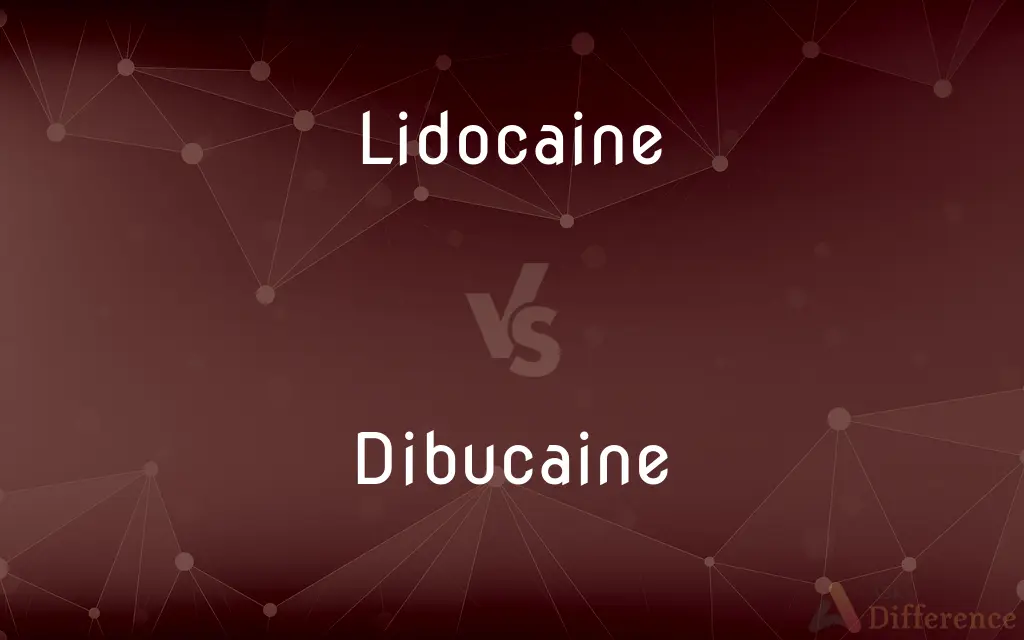Lidocaine vs. Dibucaine — What's the Difference?

Difference Between Lidocaine and Dibucaine
ADVERTISEMENT
Compare with Definitions
Lidocaine
Lidocaine, also known as lignocaine and sold under the brand name Xylocaine among others, is a local anesthetic of the amino amide type. It is also used to treat ventricular tachycardia.
Dibucaine
(organic compound) Cinchocaine.
Lidocaine
A synthetic amide, C14H22N2O, used chiefly in the form of its hydrochloride as a local anesthetic and antiarrhythmic agent.
Dibucaine
A local anesthetic that is administered by injection
Lidocaine
(pharmaceutical drug) A crystalline compound C14H22N2O that is used in the form of its hydrochloride as a local anesthetic and as an antiarrhythmic agent.
ADVERTISEMENT
Lidocaine
A local anesthetic (trade names Lidocaine and Xylocaine) used topically on the skin and mucous membranes
Share Your Discovery

Previous Comparison
Interwoven vs. Woven
Next Comparison
Almost vs. Practically














































